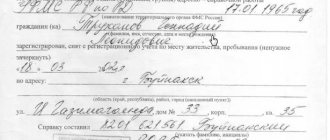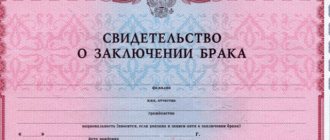What is state duty
State duty is a payment to the state for the service it provides. The government apparatus does not want to work for free - the passport officer, like any other government employee, wants money. In addition to salaries, money is needed to maintain the building in which this government employee sits in adequate condition, for consumables such as paper and ink for the printer, and so on. All this has been calculated, and based on these calculations, the price for each specific service for one applicant is calculated. This amount is called the state duty.
Lawyer's answers to questions about paying state fees in court
Do I need to pay a fee when filing a counterclaim?
Yes, the fee is paid in this case in the same way as when filing a main claim.
How to collect state duty from the defendant?
Reflect the claim for collection. If the decision is satisfactory, it will be deducted from him, as well as other legal expenses.
Is it possible to return the fee if the claim is rejected?
No, the fee is not refundable.
Is it possible not to pay the state fee, but to file a lawsuit demanding recovery from the defendant?
No, the fee is paid when submitting documents to the court, and is collected from the defendant when a decision is made that is positive for the plaintiff.
Does the court have the right to demand additional payment of the state fee when the price of the claim increases, where the subject of contention is property, during the proceedings?
Yes, this is the basis for increasing the amount of the fee, calculated from the value of the claims.
How to pay state duty through Sberbank Online
The easiest way to pay for government services is through Sberbank Online - the vast majority of Russians have it, like a Sberbank card. Below we will provide step-by-step instructions for paying through Internet banking, and later we will briefly consider payment through an ATM, terminal and bank branch.
State duty at the registry office
What you need to do to pay for the registry office services through the online service:
- We go to your personal account.
- Select “Transfers and Payments”.
- We are looking for payment of taxes, duties, payments to the budget.
- In the search we write “Registrar Office”. Several registry offices will appear, by city. We are looking for ours, click.
- A window for filling in details will open. You must specify the debit account and service.
- The next step is to indicate the document with which we will prove our identity. The easiest way is to choose a passport.
- The last step is filling out your passport information. After filling out, click “Continue”. An SMS confirmation arrives, enter the code - the operation is completed.
State duty at the traffic police
Everything is the same as in the previous instructions, only in the search we write “Staff Police” and select yours. Next, select an account, service, select a document, enter its data, and confirm payment.
State duty for a foreign passport, for obtaining a passport
Both services are located in one place, you just need to select the one you need. Where to find:
- First, go to “Payments and Transfers”.
- At the bottom of the page there will be a section “Payment for purchases and services”. In different areas the section is called differently, look for the word “Passport”. Found - click.
- You are interested in issues related to the Federal Migration Service - it is the service that issues and replaces passports and international passports. In different areas there are different names and “... on migration issues.”
- In the window that opens, you will need to select the service and the card with which to pay for it.
- Afterwards, enter your data and confirm the transaction with the code from the SMS. Ready.
State duty to the COURT
There is one problem with the state fee for court services - the amount of the state fee must be indicated independently. If you don’t pay extra, you’ll have to make another payment and go through bureaucratic pains with 2 checks. If you overpay, the money will go into the budget, and it will be almost impossible to “get it out” from there. Therefore, before paying, carefully study the issue of the amount of the amount. We will provide information on the cost below, but double-checking will not be superfluous, because conditions may change.
So, how to pay the court:
- Let's go to transfers and payments.
- In the search, enter “Court”.
- Click on “COURTS”.
- In the window that opens, select the write-off account and the desired type of vessel.
- On the next page, indicate your details and enter the amount. Sberbank Online will automatically pick up all the details of the court itself.
- We confirm the operation. Ready.
If the application is refused, is the fee refundable?
There are often situations when, after filing a claim in court, but before the start of its consideration, the parties came to a peaceful settlement of the issue. In this case, you should know whether a refund of the paid state fee is possible.
First of all, it all depends on the reason for the refusal to review the documents. If the court itself refuses to consider the claims, then this is a guaranteed refund of the paid fee. This point is enshrined in Article 333.40 of the Tax Code, in paragraph 1, paragraphs. 2.
To return the paid state fee, the general rules apply. The same procedure is used when the return of funds occurs due to the fact that the claim was left without consideration in the Supreme Court, an instance of general jurisdiction, or by arbitration courts.
But there are cases when the state tax is not returned to the plaintiff. This occurs as a result of the fact that the defendant in the case begins to voluntarily fulfill the requirements stated in the statement of claim.
You shouldn't count on getting your money back. But on the other hand, the amount spent can be recovered from the defendant.
For this purpose, there is procedural legislation, which is used by arbitration courts.
How to pay state duty through an ATM and Sberbank terminal
An ATM or terminal is an alternative payment method that does not require registration in the Internet system and takes less time than a branch.
What should be done:
- Go to an ATM or terminal.
- Insert the plastic and enter your PIN.
- In the main menu, look for “Payments in our region”.
- Select the desired government service. If it is not there or you need to pay for something in another region, look for it in “Payments and Transfers”.
- Next, you need to fill out the organization details. You can find the latter on the Internet or ask the organization whose services you are going to pay for.
- Afterwards, you need to enter your passport details.
- The final screen will show all the data you entered. Double-check - if an error has crept in somewhere, it will be very difficult to get your money back. If everything is correct, confirm the payment and collect the check.
Sberbank commissions, cost of state duties
Sberbank does not charge a commission for paying state fees.
How much to pay to arbitration courts:
- Property valuation: up to 100000R – 4% (minimum 2000R), 100001-200000R – 4000R + 3% of exceeding the threshold of 100000R, 200001-1000000R – 7000R + 2% of the threshold of 200000R, 1000001-2000000 R – 23000R + 1% of the threshold in 1000000R, more than 2000001? – 33000R + 0.5% of exceeding the threshold of 2000000R (not more than 20000R).
- Recognition of actions of government bodies as illegal, as well as non-normative acts: 300 RUR for individuals, 3000 RUR for legal entities.
- Recognition of the transaction as invalid: 6000 RUR.
- Other claims of a non-property nature: 6000 RUR.
- Application for a writ: 50% of the court fee for the property subject to the writ.
- Securing the claim: 3000 RUR.
- Appeal, termination of the case: 3000 RUR.
- Cassation appeal: 3000 RUR.
- Supervisory complaint: 6000 RUR.
- Recognition of bankruptcy: 300 RUR for individuals, 6000 RUR for legal entities.
- Establishing facts of legal significance: 3000 RUR.
How much to pay other courts, magistrates:
- Property valuation: up to 20000R – 4% (minimum 400R), 20001-100000R – 800R + 3% of exceeding the threshold of 20000R, 100001-200000R – 3200R + 2% of the threshold of 100000R, 200001-1000000R – 5200 P + 1% of threshold in 200000R, more than 1000001? – 13200R + 0.5% of exceeding the threshold of 1000000R (no more than 60000R).
- Court order: 50% of the state fee for the reason for the order.
- Claims of a non-property nature, property nature, not subject to assessment: 300 RUR for individuals, 6000 RUR for legal entities.
- Challenging regulatory legal acts: 300 RUR for individuals, 4500 RUR for legal entities.
- Recognition of actions of government bodies as illegal, as well as non-normative acts: 300 RUR for individuals, 2000 RUR for legal entities.
- Cases of special proceedings: 300 RUR.
- Appeal and cassation complaint: 150 RUR for individuals, 3000 RUR for legal entities.
- Supervisory complaint: 300 RUR for individuals, 6000 RUR for legal entities.
- Application for alimony: 150R.
Traffic police fees:
- Issuance of a passport for a car: 800 RUR.
- Car registration certificate: 500R – paper, 1500R – plastic.
- Issuance of a driver’s license: 2000 RUR – paper, 3000 RUR – plastic.
- Issuance of an international driver's license: 1600 RUR.
- Registration of a pledge agreement: 1600R – issuance of the original, 800R – issuance of a duplicate.
Registry office fees:
- Marriage: 350 RUR.
- Divorce through court, by mutual consent in the absence of children under 18: 650 RUR.
- Unilateral dissolution of a marriage if one of the spouses is incapacitated, disappeared, or is punished by imprisonment for a term of more than 3 years: 350 RUR.
- Establishment of paternity: 350 RUR.
- Change of surname, first name or patronymic: 1600 RUR.
- Issuance of certificates: 650 RUR.
- Repeated certificate: 350 RUR.
- Issuance of information from archives: 200 RUR.
Payment for passport issues:
- Issuance of a passport: 300 RUR.
- Issuance of a passport to replace a lost or damaged one: 1500 RUR.
- International passport: 2000R – regular, 5000R – biometric.
- International passport for a child under 14 years old: 1000 RUR – regular, 2500 RUR – biometric.
- Changes in international passport: 500 RUR.
- Sailor's passport: 1300 RUR.
- Changes in a sailor's passport: 350 RUR.
Deferred payment
According to Art. 64, 333.41 Tax Code of the Russian Federation and Art. 90 of the Code of Civil Procedure of the Russian Federation, plaintiffs, if there are good reasons, are given a deferment or installment plan for up to 1 year without interest:
- causing damage to a citizen as a result of fires or floods;
- the possibility of a citizen becoming insolvent after paying the fee;
- poor financial situation, confirmed by documents (recognition of a citizen as poor).
Note! The presence of minor children, credit obligations, or lack of income for an able-bodied person is not a reason for deferment or installment payment.
Example of installment plan:
The citizen filed a property claim, the amount of payment is 20,000 rubles. His average monthly earnings are 10,000 rubles. Financially, he cannot pay the fee at once, so the court approved an installment plan for him for 6 months.
How to get a deferment or installment plan?
The procedure for submitting an application for installment plan is as follows:
- Submit a petition. This is done along with filing a statement of claim or in the process of preparing the case for hearing.
- The judge will resolve the petition at the preparation stage and issue an appropriate ruling.
The definition contains the period for granting deferred payment. You can pay it off in a lump sum or in stages.
Application for a deferment
The application must contain information about:
- the case under consideration;
- FULL NAME. parties (plaintiff and defendant);
- request for a deferment, grounds;
- the time for which the installment plan must be provided.
At the end, documents confirming the difficult financial situation and other reasons are indicated.
Sample petition for deferment of payment of state duty in court:
How to track payment status
To find out whether the payment went through or not, you need to click on “All payments” on the “Payments and Transfers” tab. A history will open, which you can sort if necessary.
The payment has passed if its status is “Completed”. “Executed by the bank” means that you need to wait a little longer; if the execution took several days, call the support service and ask what the problem is. “Rejected by the bank” - the operation did not go through, this often happens when the organization’s details are indicated incorrectly. Double-check everything again, if everything is correct, contact technical support.
How to confirm payment
The fact of payment is confirmed by a check. Receiving a check is very simple: go to “All payments”, as in the previous section, select the operation you are interested in, and click on “Print a receipt”.
A window will open in which you will need to choose: send the check to a printer or save it in pdf format to print somewhere else later. A small life hack: in some organizations, with small amounts of state duty, you can simply show the receipt for the paid service on your smartphone without printing it. It’s not a fact that this will work in your particular case, but you can try.











